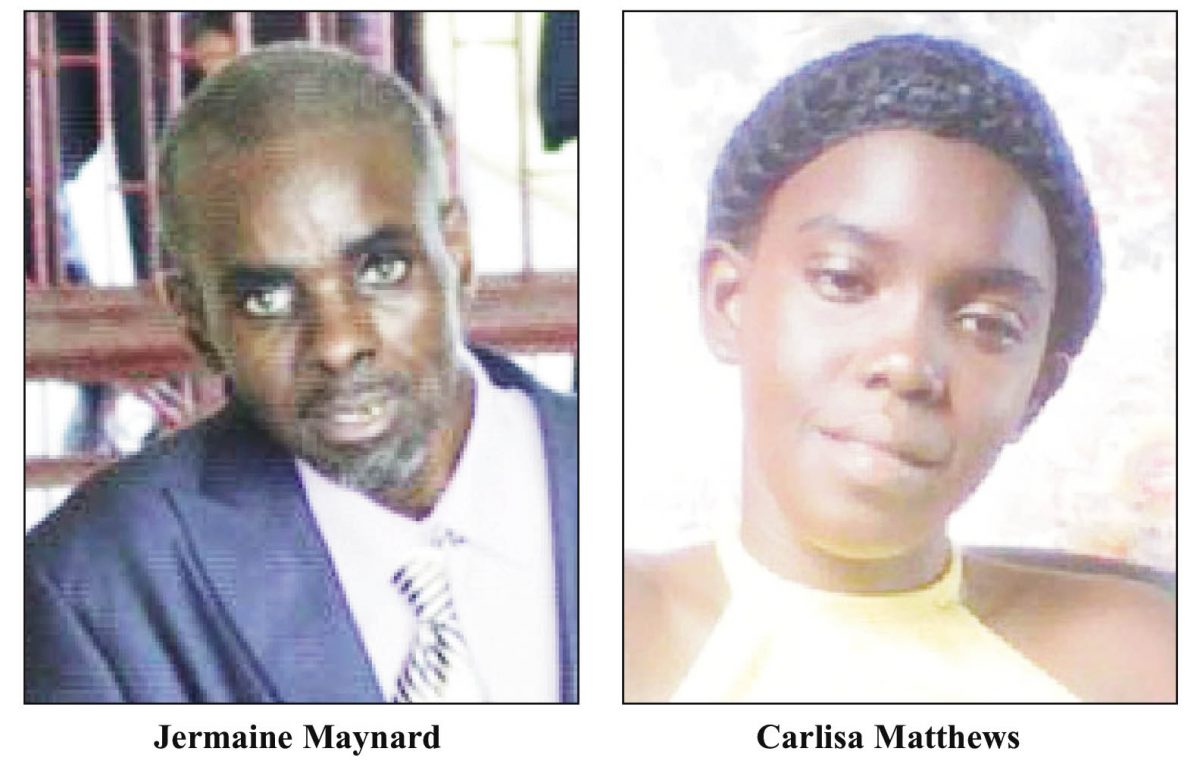Finding the 88 years imposed upon him for the murder of his former girlfriend to have been excessive, the Guyana Court of Appeal has decreased Jermaine Maynard’s sentence to 46 years, from which it ordered further deductions for time so far served since his conviction back in 2016.
On January 16th, 2016, trial Judge Navindra Singh handed Maynard an 88-year sentence following his conviction by a jury for the December 31st, 2013, shooting death of Carlisa Matthews.
Justice Singh commenced the sentence at a base of 60 years, to which he added 10 years for premeditation, six years for domestic violence, six years because Maynard had a prior similar conviction, three years for the use of a firearm, and three years for public endangerment.
It is with the base sentence that the appellate court took particular issue, pointing out that in reference to established precedent, there was no legal basis demonstrating how it was that the trial judge arrived at 60 years.
This is an observation the superior court has repeatedly been making over the years, regarding Justice Singh’s sentencings for murder which he always commences at a base of 60 years.
In assessing whether the sentence was appropriate, the Court said that while each case turns on its own peculiar facts and circumstances, there is case law authority from the apex court—the Caribbean Court of Justice—underscoring the importance of striving for consistency as a guide to sentencing.
Against this background, in Maynard’s case, acting Chancellor Yonette Cummings-Edwards who read the decision of the Court, said that when regard was given to the aggravating and mitigating factors, which Justice Singh did make allowance for, the appropriate starting point is 30, as opposed to 60 years.
These factors the Chancellor said, seemed to have been considered by the trial judge only in modifying the base sentence upward; and not for the base itself as the case laws have established.
She said that while it is true that there is no fixed sentence to be imposed for the offence of murder, and that judicial discretion has to be case-specific, precedents exist as a guide.
Chancellor Cummings-Edwards then went on to make the point that courts will naturally strive not to be too lenient in ensuring that the message of deterrence is conveyed to potential offenders, but noted too that a balance has to be struck in assessing the case as a whole.
In all of the circumstances, the Bench comprising the Chancellor along with Justices of Appeal Dawn Gregory and Rishi Persaud found 30 years to have been the appropriate starting-point.
To that base they affirmed the 10 and 6 years Justice Singh had added for premeditation and domestic violence respectively.
The Court, however, did not retain the trial judge’s imposition of an additional six years for prior similar conviction, three years for the use of a firearm, as well as the three years he had imposed for public endangerment.
Through his attorney Nigel Hughes, Maynard (the appellant) had argued that his sentence was severe and that Justice Singh erred in law for not conforming to recognized sentencing guidelines.
He had argued that the judge was without jurisdiction to add six years because of a previous conviction, an additional six years for domestic violence and the additional three years for public endangerment.
Maynard had advanced that his previous conviction was not the subject of the trial before Justice Singh and also that there was no evidence before him on the matter of domestic violence, but rather the mere opinion of the mother of the deceased who characterized the relationship between her daughter and the convict as an abusive one.
The appellant argued, too, that the 3-year addition for public endangerment was done in error; since there was no evidence that any member of the public other than the deceased was injured.
It was the contention, however, of State Counsel Dionne McCammon, that the sentence was not excessive.
She had argued that the trial judge could have otherwise imposed a sentence of death, but thought instead that a term of years would be appropriate since Maynard’s case did not fall into the worst-of-the-worst category.
At the trial, Matthew’s mother, Carol Kennedy, had testified that on Old Year’s night 2013, her daughter was standing outside of the then Water Street KFC outlet when Maynard approached and asked to speak with her.
She said that at the time, she and Matthews were in the company of other relatives and friends waiting to celebrate the break of the New Year.
Kennedy had told the court that after the two spoke for about five minutes, she then saw the convict pull out a gun and shoot her daughter in the head. The court had heard that Maynard then walked away from the scene and was later arrested and charged.
In her testimony, Kennedy had said that her daughter, 20, and the then 44-year-old Maynard shared an abusive relationship, which the woman decided to end some six months prior to her death.
Police witnesses had testified to arresting Maynard just as he was about to board a vessel at the Guyana/Suriname “backtrack” crossing at Springlands, Corentyne, Berbice.
Prior to Matthews’ killing, Maynard had served a 14-year sentence for manslaughter.




